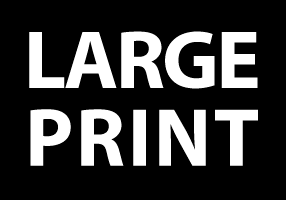Our People Our Climate, Sophie Reuter, If Not Us Then Who?
The Word for World is Forest
Fri 29 October — Sat 11 December 2021

Wheelchair accessible

Large print

Anna Irwin
The Word for World is Forest brings together three perspectives on climate change from very different regions of the world.
Our People, Our Climate is a ground-breaking documentary film initiative, aiming to develop the storytelling skills of Nunavut youth and young adults. Inuit communities across Canada's Arctic are essential to current climate change discussions, and this project brings together a range of young people in these communities to tell important stories through a unique and distinct cultural lens. Beginning in early 2020, the project emerged as an international collaboration between West Baffin Eskimo Cooperative, Centre for Contemporary Arts, Glasgow, ilinniapaa Skills Development Centre in Iqaluit and University of Minnesota, Duluth.
Sophie Reuter, a German photographer, contributes a photographic series that focuses on the eco-activist struggle to save the remaining part of the Hambacher forest located between Cologne and Aachen. This ancient forest has been decimated in the last decade by the extension of an open pit mine extracting lignite, which produces a third more carbon than more common coals. Activists occupied the forest, constructing a network of treehouses high above ground, linked by walkways. Conditions were always difficult and exacerbated by regular confrontations with the police who argued that the protestors’ barricades and infrastructure for living would impede access to a forest fire. In September 2018, there was a major attempt to oust the protesters using armoured vehicles with ploughs and water cannon, evicting people from at least fifty treehouses.
If Not Us Then Who? is a charity that runs a global awareness campaign highlighting the role Indigenous and local people play in protecting our planet. Working in partnership with communities, they facilitate the production of films and photographs that document the work of these communities and advocate for greater rights for Indigenous and local peoples to bring about positive social change.
Transformations on CCA Annex
Indigenous peoples experience and react to change in diverse ways. Climate change is no exception, as it requires local communities to be more resilient, and not just simply adapt to the changing environmental circumstances. Experts and people from communities living and working in Brazil, Iceland, Berlin, Indonesia and Chile are asked to respond to the theme of‘transformation’ in this online series. Their strong connections to the land can offer a unique perspective to discuss transformations, not just in their environment, but in their everyday life, customs, families and life experiences. What factors play a role in a community’s capacity to adapt, survive and grow sustainably in the face of change? How do we react to a shock through art, journalism or activism and what kind of transformative processes can become acceptable in the face of the worst-case scenario for our planet?
A collaboration between Goethe-Institut Brussels & Glasgow as well as the Center for Contemporary Arts in Glasgow, part of the event series programmed to accompany the COP26 Festival, taking place in Glasgow 1-12 November 2021. View Transformations here.
Documentation
Photography by Alan Dimmick.
Forest Bathing
To accompany the exhibition, Maarya Sharif will lead us in a session of forest bathing at Pollok Park that focuses on our experience, encounters and connections to the natural landscape.
Downloads
The Word For World is Forest Exhibition Text → The Word for World is Forest Exhibition Map →Event Collection
Part of COP26
Details
Event Type
Exhibitions
Location
Gallery
Time
11:00am — 6:00pm
Ages
All ages
Ticketing
Free and unticketed
Accessibility
Wheelchair accessible
Large print
View all dates
Fri 29 October
Sat 30 October
Tue 2 November
Wed 3 November
Thu 4 November
Fri 5 November
Sat 6 November
Tue 9 November
Wed 10 November
Thu 11 November
Fri 12 November
Sat 13 November
Tue 16 November
Wed 17 November
Thu 18 November
Fri 19 November
Sat 20 November
Tue 23 November
Wed 24 November
Thu 25 November
Fri 26 November
Sat 27 November
Tue 30 November
Wed 1 December
Thu 2 December
Fri 3 December
Sat 4 December
Tue 7 December
Wed 8 December
Thu 9 December
Fri 10 December
Sat 11 December







